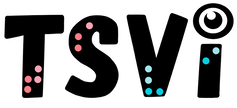- Home
-
VI Basics
-
Eligibility
- VI Referrals >
- Medical Vision Exam >
- Visual Diagnosis >
-
FVLMA
>
- FVLMA & Service Printables
- Conducting a FVLMA
- What is the FVLMA
- Environmental Observations
- Student Observations
- Interviews
- Assessment Kit Materials
- Oculomotor Skills
- Near Visual Acuities
- Print Comparisons
- Distance Acuity
- Test Visual Fields
- Vision Skills
- Learning Media Assessment
- Reading Rates
- Writing the FVE Report
- Other Evaluations >
-
Service
- ECC Annual Needs
- Service Plans >
- Goals & Objectives >
-
Adaptations
>
- Accommodations & Modifications
- School Campus Adaptations
- Playground Adaptations
- Movies & Assemblies
- Classroom Design Tips
- Adjust Lighting
- Label Classroom
- Board Work (Chalk, Interactive, White)
- Morning Meeting
- Lectures & Instruction
- Accessible Educational Materials
- Photocopying
- Font Legibility
- Increase Contrast
- Pictures and Worksheets
- Large Print
- Accommodations for VI
- Accessible Content for BLVI
- Collaboration >
-
Instruction
>
- Material Preparation
- Virtual Instruction
- Development of ECC Resources
- Teaching the ECC
- Teaching in Thematic Units
- Instructional Strategies
- iPads as Instructional Tools
- Standard Course of Study Strategies & Activities
- The Art of Teaching the ECC
- Activities to Teach the ECC
- Virtual & F2F Strategies
- Found of Teaching the ECC in the Age of Virtual Instruction
- Complete Set Bonus >
-
Themes
>
- Using Themes to Teach the ECC
- Back to School
- Birthday's and Aging
- Self & Identity
- Pets & Service Animals
- Family & Geneology
- Apples & Orchard
- Autumn & Home Maintenance
- Pumpkins & Farms
- Costumes & Candy
- Politics & Voting
- Grocery Stores
- Meal Preparation & Thankfulness
- Shopping & Clothing Care
- Christmas & Gift Giving
- Clocks, Time, New Year
- Resolutions & Healthy Habits
- Wintertime
- Cold & Flu Season
- Adapted Sports & Paralympics
- Valentines Love & Friendship
- Severe Weather Unit
- Stay Safe
- Home & Spring Cleaning
- Springtime & Easter
- Gardening
- Communication & Post Office
- Hygiene & Grooming Unit
- Transportation
- Jobs & Employment
- Graduation & Life Changes
- The Great Outdoors
- Vacations & Travel
-
ECC
-
Compensatory
>
-
VI Assistive Tech
>
- VI AT Printables
- Selecting the Right AT
- Overview of Assistive Technology
- Low/Medium Tech Devices for Tactual Learners
- Non-Optical Low Vision Devices
- Optical Devices for Near
- Optical Devices for Distance
- Making the iOS Device Accessible
- VoiceOver
- iOS Accessibility Resources
- Screen Magnifiers & Readers
- Magnifier Apps
- Keyboarding Instruction
- Word Processing and Shortcuts
- Navigate Computer without a Mouse
- Video Magnifiers
- Video Magnifier Instruction
- Braille Technology
- Notetaker Instruction
- Auditory Access Devices
- Accessing Audio Books
- Apps to Access Books
- Apps for VI
- VI AT Resources
- Social Skills >
- Self Determination
-
Sensory Efficiency
>
-
Independent Living
>
- Responsibility & Independence
- General Home Safety
- Bathroom Adaptations
- Hygiene & Grooming
- Medication Adaptations
- Dramatic Play
- Dressing & Clothing Identification
- Clothing Management
- Housekeeping Maintenance
- Eating Adaptations
- Mealtime Independence
- Kitchen Adaptations
- Food Preparation
- Recipe Activities
- Money
- Orientation & Mobility >
- Recreation & Leisure >
- Career & Vocational >
-
Compensatory
>
- VI Store
- Jobs
Medical ProfessionalsBy Carmen Willings
teachingvisuallyimpaired.com Updated March 29, 2022 Many factors including whether the doctor is "in network" with your medical insurance, the doctor's qualifications, recommendations from family and friends, geographic location and the doctor's "bedside manner" will play a role in who you may choose for you or your child's vision care. Some areas and expertise in the medical field overlap slightly but there are some great differences between specialists. The following are some of the medical professionals who may provide services to a person with a visual impairment. OcularistAn ocularist is specialized in the fabrication and fitting of ocular prostheses for people who have lost eyes due to trauma, illness, or were born without eyes. The process for creating a custom made eye typically includes taking an impression of the eye socket, shaping a plastic shell, painting the iris and then fitting the prostheses. The ocularist will help the patient or caregiver how to care for and handle the prosthesis.
OphthalmologistAn ophthalmologist is a medical doctor (M.D.) who specializes in the diagnosis and treatment of all visual impairments and eye diseases, performs surgery, and prescribes other types of treatment, including eyeglasses, other optical devices, or medication, when necessary. In addition to performing comprehensive eye examinations and measuring refractive errors (i.e., irregularities in the size or shape of the eyeball or surface of the cornea) they ophthalmologist can make the initial determination as to whether the student has a visual impairment. If the student needs medical attention because of the eye condition, it is best for him to be under the care of an ophthalmologist.
OpticianAn optician is a specialized health care practitioner who designs, fits and dispenses lenses for the correction of a person's vision. These include ophthalmic lenses, spectacles, contact lenses, low vision aids and ocular prosthetics. The prescription for the corrective lenses must be supplied by an ophthalmologist, optometrist.
OptometristThe optometrist is a doctor of optometry (O.D.) and holds an advanced degree in optometry. The optometrist can diagnosis, manage, and treat conditions and diseases of the human eye and visual system as regulated by state law (not a medical doctor). The optometrist measures refractive errors, prescribes and fits eyeglasses and contact lenses, and may also provide vision training.
Developmental OptometristsDevelopmental Optometrists will exam the physical condition and health of the eye. They conduct additional tests to the routine eye exam to determine if the student has developed visual skills they need to adequately perform tasks required in their daily lives, particularly at work or school. They evaluate binocularity (how the eyes interact with each other and transmit information to the brain), oculomotility (tracking), accommodation (focusing), visual perception, and visual motor integration (eye-hand coordination). If the student is having problems in these areas, the Developmental Optometrist will recommend special lenses and/or vision therapy. (See Eligibility and the Vision Therapy Controversy).
OrthopistOrthopists are eye care specialists who work with ophthalmologists to evaluate and treat eye disorders involving eye movement and eye alignment. They primarily work with school age patients who have muscle alignment difficulties, double vision, and Amblyopia. They typically develop treatment plans utilizing eye exercises, eye patches, eye drops or special glasses.
Neuro-ophthalmologistsNeuro-opthalmology is the sub-specialty of both neurology and ophthalmology concerning visual problems that are related to the nervous system. A neuro-ophthalmologist is a physician specializing in diseases affecting vision that originate from the nervous system. (North American Neuro-Ophthalmolgy Society)
Retinal SpecialistRetinal specialists are specialized eye doctors who treat only diseases of the retina. The retinal specialist is most often called upon when vision can no longer be improved after appropriate glasses have been prescribed and/or cataract surgery to determine the cause of the persistent decreased vision, or if there is any abnormality noted in the back of the eye on routine eye exams. (Sarasota Retina Institute, 2011, Melvin Chen MD)
|
History of Visual Impairments
Professional Practice
Vision Professionals
Professionalism
Teacher Resources
Professional Publications
VI Book Resources
Family Resources
VI Referrals
Medical vision exams
visual diagnosis
fvlma
|
|
Teaching Students with Visual Impairments LLC
All Rights Reserved |
- Home
-
VI Basics
-
Eligibility
- VI Referrals >
- Medical Vision Exam >
- Visual Diagnosis >
-
FVLMA
>
- FVLMA & Service Printables
- Conducting a FVLMA
- What is the FVLMA
- Environmental Observations
- Student Observations
- Interviews
- Assessment Kit Materials
- Oculomotor Skills
- Near Visual Acuities
- Print Comparisons
- Distance Acuity
- Test Visual Fields
- Vision Skills
- Learning Media Assessment
- Reading Rates
- Writing the FVE Report
- Other Evaluations >
-
Service
- ECC Annual Needs
- Service Plans >
- Goals & Objectives >
-
Adaptations
>
- Accommodations & Modifications
- School Campus Adaptations
- Playground Adaptations
- Movies & Assemblies
- Classroom Design Tips
- Adjust Lighting
- Label Classroom
- Board Work (Chalk, Interactive, White)
- Morning Meeting
- Lectures & Instruction
- Accessible Educational Materials
- Photocopying
- Font Legibility
- Increase Contrast
- Pictures and Worksheets
- Large Print
- Accommodations for VI
- Accessible Content for BLVI
- Collaboration >
-
Instruction
>
- Material Preparation
- Virtual Instruction
- Development of ECC Resources
- Teaching the ECC
- Teaching in Thematic Units
- Instructional Strategies
- iPads as Instructional Tools
- Standard Course of Study Strategies & Activities
- The Art of Teaching the ECC
- Activities to Teach the ECC
- Virtual & F2F Strategies
- Found of Teaching the ECC in the Age of Virtual Instruction
- Complete Set Bonus >
-
Themes
>
- Using Themes to Teach the ECC
- Back to School
- Birthday's and Aging
- Self & Identity
- Pets & Service Animals
- Family & Geneology
- Apples & Orchard
- Autumn & Home Maintenance
- Pumpkins & Farms
- Costumes & Candy
- Politics & Voting
- Grocery Stores
- Meal Preparation & Thankfulness
- Shopping & Clothing Care
- Christmas & Gift Giving
- Clocks, Time, New Year
- Resolutions & Healthy Habits
- Wintertime
- Cold & Flu Season
- Adapted Sports & Paralympics
- Valentines Love & Friendship
- Severe Weather Unit
- Stay Safe
- Home & Spring Cleaning
- Springtime & Easter
- Gardening
- Communication & Post Office
- Hygiene & Grooming Unit
- Transportation
- Jobs & Employment
- Graduation & Life Changes
- The Great Outdoors
- Vacations & Travel
-
ECC
-
Compensatory
>
-
VI Assistive Tech
>
- VI AT Printables
- Selecting the Right AT
- Overview of Assistive Technology
- Low/Medium Tech Devices for Tactual Learners
- Non-Optical Low Vision Devices
- Optical Devices for Near
- Optical Devices for Distance
- Making the iOS Device Accessible
- VoiceOver
- iOS Accessibility Resources
- Screen Magnifiers & Readers
- Magnifier Apps
- Keyboarding Instruction
- Word Processing and Shortcuts
- Navigate Computer without a Mouse
- Video Magnifiers
- Video Magnifier Instruction
- Braille Technology
- Notetaker Instruction
- Auditory Access Devices
- Accessing Audio Books
- Apps to Access Books
- Apps for VI
- VI AT Resources
- Social Skills >
- Self Determination
-
Sensory Efficiency
>
-
Independent Living
>
- Responsibility & Independence
- General Home Safety
- Bathroom Adaptations
- Hygiene & Grooming
- Medication Adaptations
- Dramatic Play
- Dressing & Clothing Identification
- Clothing Management
- Housekeeping Maintenance
- Eating Adaptations
- Mealtime Independence
- Kitchen Adaptations
- Food Preparation
- Recipe Activities
- Money
- Orientation & Mobility >
- Recreation & Leisure >
- Career & Vocational >
-
Compensatory
>
- VI Store
- Jobs

